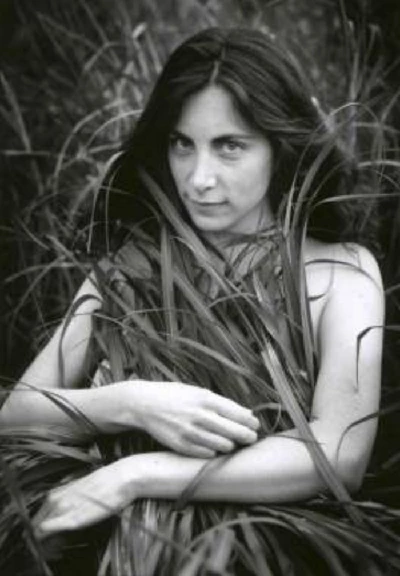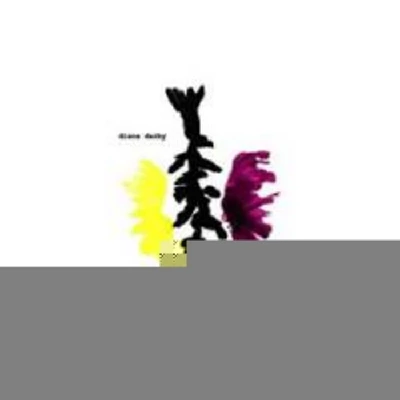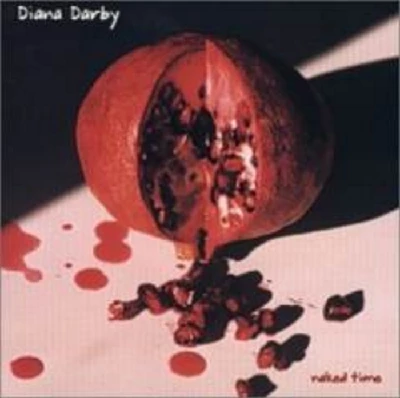published: 11 /
5 /
2003

Diana Darby's haunting songs tell of child abuse and dysfunctional family relationships. With her second album 'Fantasia Ball' soon out, she talks to John Clarkson about her previous career as a sitcom writer and escaping from her Houston childhood
Article
The formerly taboo subjects of child abuse and dysfunctional family relationships have become almost commonplace themes for American female songwriters in recent years.
While singers such as Courtney Love, Alanis Morissette and Tori Amos have tackled the after effects of their traumatic childhoods aggressively, using their music as a form of primal scream therapy, Nashville based, Texas bred artist, Diana Darby, has, however, adopted a different approach.
On her soon-to-be released second album, 'Fantasia Ball', her hushed voice rarely raises itself above a whisper. Rather than letting her anger out, she seems to be constantly holding it back and keeping it inwards. The instrumentation on 'Fantasia Ball' is similarly muted and sparse. Darby appears on several of the tracks alone with just her electric guitar for company. At other times she extends her tunes with what she describes as "splashes of colour", and is accompanied by cellist, David Henry, and bassist and occasional second guitarist, J.Z. Barrell.
Like the third self-titled record of the Velvet Underground, or the music of Nick Drake or Kendra Smith's Opal, all with whom it has drawn early favourable critical comparisions, 'Fantasia Ball' has a haunting quality. Its underplayed, but often horrific themes; the stripped down instrumentation, and above all Darby's choked back, slightly ethereal vocals, far from subduing the record, give it an eerie force and power.
"My vocals are about me facing up to my demons" says Darby, talking to Pennyblackmusic. "Quite a lot of people have commented on them, but it wasn't a deliberate ploy to sing that way. I have always felt my whole life that I have had a grapefruit shoved down my throat. People keep asking me if it is a style, but really it's not. I have never really been comfortable with anger, and whatever part of me tries to crawl out through the grapefruit is all that comes out. My anger, therefore, has a real simmered intensity. It's probably because it's too frightening for me to deal with."
A poet at the age of five, and a songwriter by the time she was seven, the young Diana's fascination with words would lead to clashes with her domineering mother. "She thought I was a dreamer and she always told me you can't make a living writing poetry. So far she's right." At seventeen she left her home town of Houston and moved to Los Angeles, where she took pre-med courses in college to appease her mother, but balanced it out with classes in poetry and writing. Much to her family's chagrin, she got an undergraduate degree in Theatre at the University of Southern California, and then a Masters in Writing and Directing.
Enlisted by Warner Brothers through a writer's workshop in television sitcom writing, she was given a job in early 1995, working on 'Full House', a cutesy popular comedy, then in its ninth and final season, about a bumbling widower and his three sassy daughters. The youngest daughter was played jointly by the infamous Olsen twins. Mary Kate and Ashley, who have since gone on to become Hollywood actresses and multi-million selling clothing, bedding and other accessory manufacturers.
"It was totally sugar-coated, and an absolutely terrible show" Darby laughs. "As I was on the last season, I'd like to give myself credit for being the reason it ended. It was an easy show to be on in terms of you got paid very well and had very short hours. A lot of TV writing you can be there for sixteen hours a day, but this was pretty much like bank hours. It wasn't creative for me though, and it wasn't my sort of humour. My humour is a lot darker. It wasn't a good match at all."
"My agent told me that in a couple of years I could be writing my own show. But when I thought about that, it didn't really appeal to me. So I sat down with myself and thought about what I really loved doing, and for me it was poetry and songwriting. I decided I would much rather be doing that. I left that world and moved to Nashville."
A year after she arrived she met Mark Linn, a producer from Seattle who was in town working on 'Real', a Tom T. Hall tribute record. Linn runs his own small label, the Delmore Recording Society. He had worked with John Fahey and Arthur Lee, and feeling that Darby's dark, vulnerable songs were engrained with a similar offbeat talent, offered to release a CD.
"Naked Time", her debut album, followed in 2000. Described by one critic as being the "the visions of a wounded mind running amok in a field of flowers", its themes are a precursor to those of 'Fantasia Ball'. Darby's vocals are once more subdued, but the album, which employs at various points windchimes, pedal steel and drums , has a more "finished" sound.
Darby has spent as much time as possible since then touring, and has subsidised herself in the breaks between tours with a string of temporary jobs. She has worked as a homework assistant in the Nashville ghetto and as a poetry teacher helping disturbed teenagers in rehab.
'Fantasia Ball' took its initial genesis in late 2001 when Darby was invited to record a version of 'Jesus Was a Capricorn' for a Kris Kristofferson tribute album, 'Nothing Left to Lose', which, also featuring Calexico, the Radar Brothers, Richard Buckner and Grandaddy, was released on Incidental Music last year.
"The Kristofferson song was recorded live in the studio, and we kept the "scratch" vocal" she recollects. "It was a happy accident, but I felt that it really had something. I really liked the feel of a complete vocal take, so I resisted the temptation to re-do anything."
The next logical step was for Darby to record herself. 'Fantasia Ball' was recorded largely alone at home, before Darby took the tapes to Barrell, who has a home studio in New York, and Henry, who is also based in Nashville, to solder on their contributions.
"I just wanted it to be all me, as much as possible" she says. "It took a couple of months. It was just a matter of me sitting down with my four track and laying down versions of the songs, and finding versions that I liked."
"I had a box full of cassettes. I would get pretty much all the way through a version and then my dog would bark or the phone would ring or something would happen. I'd have to hit stop, scream and start all over again."
Darby uses the term "confessional depressant" to define herself to critics, or to anyone else who asks her what her music sounds like.
"My songs come from a confessional place, and they usually come from a kind of sad place, so that's where that term, initially humorously, got coined. I don't like having to put myself in a box, and I don't even know what that box is. I just write."
Perhaps the most harrowing of all the tracks on 'Fantasia Ball' is 'My Own'. It tells of the still lingering effects Darby feels from having "survived" her mother. ("I feel your blood run through my veins/ I pray to God we're not the same") The lyrics are sung with a 'Nirvana Unplugged' intensity. ("When I was five you took my hand/I didn't know or understand/you broke my collar bone"). "The collar bone thing was more of an accident. I slipped and my mother had me by the arm and it broke. For me the song is about how you become broken by what happens, and how you internalise the things that were said and done to you long after you have left. No one's hurting you anymore. You're hurting yourself because you have it all internalised. It doesn't matter how far away you go."
As well as her songwriting, Diana Darby is also concentrating on her poetry, and is currently writing and adding a poem each day to her website http://www.dianadarby.com. 'Fantasia Ball', however, remains her immediate priority. It will be released, again on the Delmore Recording Society, in the United States on June 17th, and then shortly afterwards in Europe. Darby will be touring the East Coast of America with it in June, and then Europe in October.
'My songwriting and my poetry are definitely a sort of therapy" she concludes."I hope that it is a form of therapy for other people too. When I first wrote "Naked Time", I thought I don't want to be this naked, but the more I go, the more I feel free to go." One wishes this brave, honest woman well.
Picture Gallery:-

